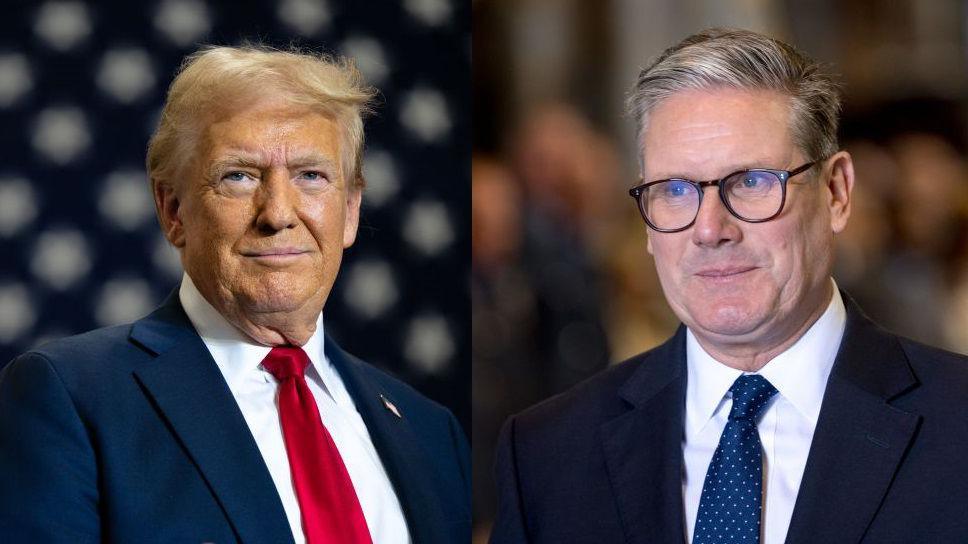In a surprising twist in transatlantic trade relations, new data reveals that British exports are now subject to higher effective tariffs in the United States than those from the European Union—a development that casts fresh doubt on the strength of the so-called “special relationship” between Washington and London.
According to analysis by Capital Economics, reported by The Telegraph, the average effective U.S. tariff on UK goods stands at 11.6%, compared to just 9.5% for the EU. That leaves the UK behind not only the bloc it once exited, but also behind trade partners like Mexico, Canada, India, Thailand, and Vietnam, many of whom benefit from preferential or sector-specific agreements with the U.S.
Sector-Specific Pain for UK Industry
The disparity is not purely political—it’s structural. A significant share of British exports to the U.S. consists of automobiles and steel, which face sector-specific tariffs beyond the headline rate. While the official tariff rate introduced by the Trump administration is 10% for UK goods and 20% for the EU, British cars and steel face additional charges of up to 25%.
The pain is already being felt. In 2024, UK carmakers exported £9 billion worth of vehicles to the U.S., making it Britain’s single largest export category. Companies like Jaguar Land Rover and Aston Martin are disproportionately exposed to the new levies.
In contrast, the EU’s advantage stems from composition and exemptions: high-value pharmaceutical exports from the bloc continue to enter the U.S. tariff-free, thanks to pre-existing carve-outs. Similarly, Vietnam and India benefit from electronics exemptions, while Canada and Mexico maintain preferential access under the USMCA (United States–Mexico–Canada Agreement).
A Special Relationship—In Question
The findings come as a blow to UK hopes of leveraging its post-Brexit independence into a swift and favorable trade deal with Washington. Ironically, the higher U.S. burden on British goods stands in stark contrast to Trump’s well-documented hostility toward Brussels, once accusing the EU of being “formed to screw the United States.”
Despite that rhetoric, the EU enjoys a better deal—while Britain, publicly praised by Trump earlier this year, remains stuck behind the negotiating line.
After a meeting with Prime Minister Sir Keir Starmer in February, Trump said there was a “good chance of a deal where tariffs wouldn’t be necessary,” even joking that Starmer had “earned whatever the hell they pay him over there.” But insiders say the U.S. has since deprioritized the UK in its trade strategy.
Strategic Downgrade
Recent reports indicate that the Trump administration has downgraded Britain to “second-order priority” status in trade talks. Countries such as South Korea and Japan are receiving more immediate attention, owing to regional strategic interests and existing defense cooperation.
UK Business Secretary Jonathan Reynolds, addressing the issue on Friday, said that the Government’s public consultation on the tariffs would guide next steps. “All options remain on the table,” Reynolds said. “We are in a new era for trade and the economy, and that means going further and faster to strengthen the UK’s economy. While we analyse responses, our priority is to build on the strength of our relationship with the U.S.”
Some of the Trump administration’s policy direction is believed to be guided by Project 2025, a sweeping conservative playbook published by the Heritage Foundation. The 900-page document outlines major federal reforms—including the abolition of the U.S. Department of Education—and has already influenced appointments within Trump’s team.
Paul Dans, a former Trump official and Project 2025 architect, expressed optimism that a U.S.–UK deal is still possible. “President Trump ultimately wants to get to a yes on deals,” he said. “Now is the time for the UK to make a good deal.”
Still, with tariff disparities widening and Britain sidelined in current talks, London’s leverage is unclear.
Despite symbolic affirmations of the U.S.–UK “special relationship,” trade data tells a harsher truth: Britain pays more to access the American market than many of its rivals, including the EU. As the UK searches for a new role in the global economy, the road to Washington appears longer—and more expensive—than once imagined.



